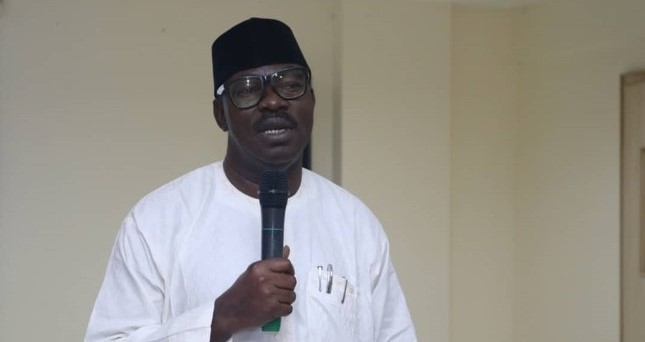The National Biosafety Management Agency (NBMA) has warned all seed and grain importers to abide by the biosafety laws guiding importation of Genetically Modified (GM) grains or face the law.

Dr Rufus Ebegba, the Director-General, NBMA, gave the warning on the sidelines of the GM Commodity Trade Consultative Forum in Abuja on Thursday.
Ebegba said anyone found guilty of contravening the law risked five years imprisonment or a fine or both and such facilities that were used would also be confiscated.
He said the purpose of the gathering was to provide information to importers on the provisions of the NBMA act as it relates to GM grain importation and identify challenges experienced in the course of GM grain import.
“Although we have not found anybody involved in sharp practices but there are severe consequences; five years imprisonment for anybody that brings in GMO or introduce it in the environment without biosafety permit.
“There are also penalties in the area of fines and the confiscation of all such materials related to the offence. We are hoping everybody will abide by the biosafety law so there will be no consequences for anybody.
“The internationally agreement that Nigeria signed, the Cartagena Protocol on Biosafety makes it mandatory for any country that intends to export any GMO to obtain an advance informed agreement before they are brought into the country.”
Ebegba expressed hope that by the end of the forum importers of grains would abide by the biosafety guidelines.
Prof. Alex Akpa, the Acting Director-General, National Biotechnology Development Agency (NABDA), said the fears concerning GM food were totally “unfounded’’ .
Akpa said the fears were being generated by detractors who did not want Nigeria to succeed or guarantee food security in the country.
According to him, the technology used in the production of GM foods is the same technology used in the production of vaccines and vaccines are injected directly into the blood stream for as young as one-month old babies.
“The same group that will tell you that GM foods are not safe will not tell you that vaccines are not safe.
“That is to tell you there is deceit in the whole thing designed to keep us down, so we keep on importing those materials from those countries.
He added that the U.S., known to have one of the most stringent rules in the world in safety of foods and products, had been using GM food and products for over 25 years.
Akpa said that no learned journal in the U.S. had written any article deleterious to GM technology or its products so far.
“Recently because of the controversy created by detractors over 150 Nobel laureates in science met in the US and looked at all the publications and journals, including research
“After their meeting, they came to the conclusion that there was nothing wrong with GM foods or products and they recommended it strongly for all developing countries to guarantee food security for their people. “
Mr John Komen, the Africa Coordinator, Programme for Biosafety Systems (PBS), applauded the NBMA on the strides it had achieved in the last five years, especially for coming up with safety guidelines on biotechnology and expansion of the Act to include regulation of emerging biotechnology.
Komen said that he was happy at the successful commercialisation of the first engineered food crop, the BT insect protected Cow-Pea by Nigeria which would be available in 2020.
“That is why this forum is important because as farmers start planting and start trading with their neighbouring countries we have to consider import and export protocols and their decision-making procedures.”
Komen said the organisation had enjoyed 15 years of collaboration with the Nigerian government and looked forward to more years of collaboration.
Prof. Celestine Aguoru, the President Nigeria Biotechnology and Biosafety Consortium, assured the NBMA of its willingness to partner with NBMA to ensure that biotechnology is deployed for the benefit of the country and done safely.
“We made up of legal experts, communication experts, developers of the technology, who are practitioners in this sector and we will partner with biosafety agency and NABDA to provide scientific evidence based information.”
A participant, Mr Okolo Samson of Value Seed Ltd., said the workshop was apt, adding that the meeting would boost the morale of the importers and ensure obedience to the laws guiding importation of GM seeds and crops.
Samson said the laws put in place for importers were good enough and were working so far, adding that it would go a long way to curb whatever fears people had.
By Okeoghene Akubuike
